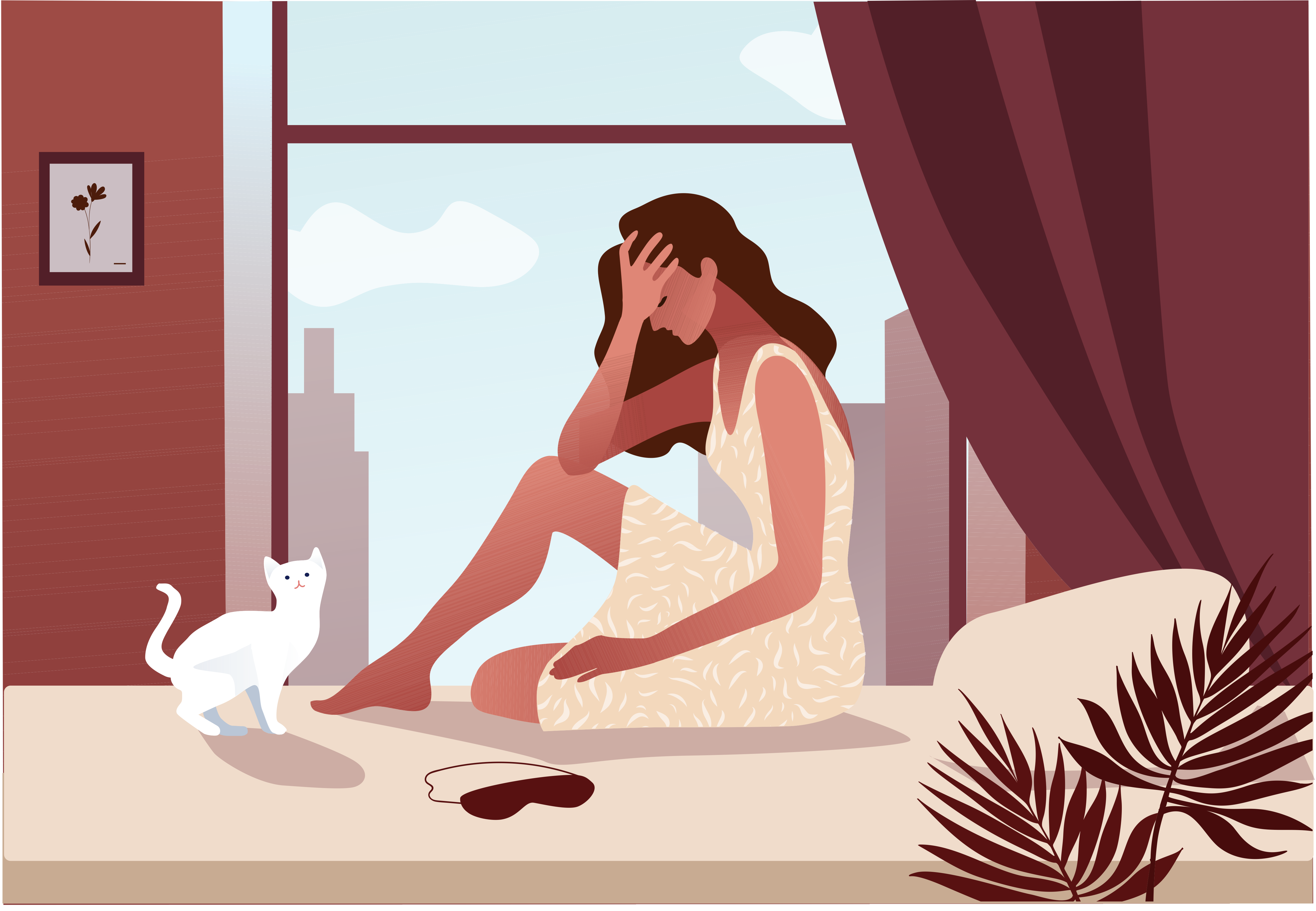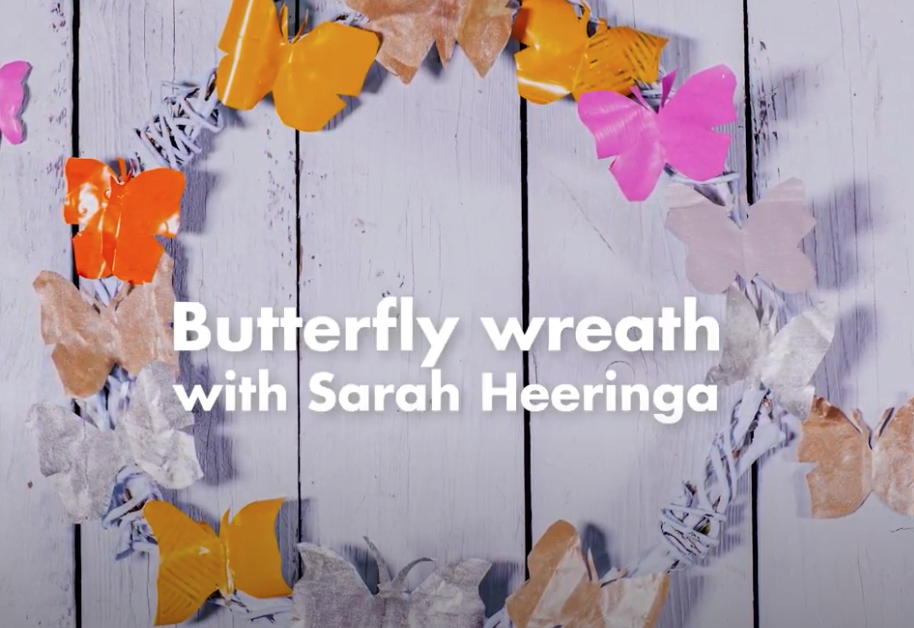For decades, stress has had a bad name. But new research is shining light on the misconception that it’s inevitably bad for our health. In fact, make stress your friend, and you might even become healthier.
It’s a Wednesday morning and I’m taking a break from the office – temporarily swapping my desk for a massage table. I’m lying face down, collecting my thoughts as I inhale the calming scent of Rock Rose that is diffusing in a bowl beneath me. The door softly closes behind my therapist, who asks me to leave my qualms outside the room for the duration of my treatment, before beginning to work a personalised blend of potent essential oils into and around the knots in my body. I wonder if she’ll comment on these areas of tension, where my recent stress has physically manifested itself. At present, they feel glaringly obvious.
But I am not alone. Whether it is from looming deadlines, financial or domestic troubles, heartbreak, or working longer hours, many of us can attest to feeling stressed more frequently. In fact, in the latest Wellness in the Workplace survey of businesses representing 93,000 New Zealand employees, more than 30 per cent said their stress levels had risen in the last two years. It really has become an epidemic in modern life.
However, despite numerous studies and reports suggesting stress is inevitably detrimental to our health, it really needn’t be the villain we all fear it to be. It can actually – to an extent – be incredibly healthy for us. The key is to understand what it does to our body, and change our perception of its purpose: to help, rather than to harm. If we can do this, as well as find ways to find calm faster during periods of stress, we can be healthier and more resilient in this fast-paced world in which we live.
In his book, Sweat Equity: Peak Performance for the Leaders of Today and Tomorrow, author and wellness expert Greg Stark explains that when we become stressed, our body responds by releasing an influx of stress hormones including cortisol and adrenaline. These hormones constrict our blood vessels (one of the reasons that chronic stress is often associated with cardiovascular disease) to send more oxygen to our muscles, preparing them to tackle the stressful task at hand. Other things start happening too – our heart rate, blood pressure and perspiration levels increase, and our breathing may quicken. This is our sympathetic nervous system taking over, also known as our ‘fight-or-flight response’.
“Without this reaction our ability to avoid threats and perform demanding tasks significantly diminishes. We need stress to perform, to grow and get fitter, smarter and stronger. Stress is our friend… it is inevitable,” says Stark.
However, our body is not designed to constantly be in fight-or-flight mode. If we are in this mode for a sustained period, our bodies must work harder for longer – and that’s when stress comes with negative health impacts. We should be aiming to activate our parasympathetic nervous system for the most part – also known as the ‘rest and digest response’, where our heart rate is lower, our breathing calmer. It’s all about creating a better balance between these responses.
Emma Ferris, a Queenstown-based physiotherapist, breathing coach and director of The Breath Effect, an online resource offering techniques for better breathing, stress management and optimal wellness, says stress occurs in lots of different ways, whether it’s emotional, psychological, or physiological. “People don’t see the triggers are often coming from lots of different areas of their lives, and then it has a full-on overall impact on the nervous system, and how we sleep and how we rest.”
But, says Ferris, “If we can understand stress, learn to love it and then learn to change the things that impact the way we think [about it], we can turn down that stress response that is finely tuned in our body. It’s important for letting us survive,” she says.
Make stress your friend
Stanford University health psychologist Kelly McGonigal spent years spreading the message that stress makes you sick. Then one day, she changed her mind.
Her 2013 TED Talk, ‘How to make stress your friend’, where she discusses research suggesting stress may only be bad for you if you believe that to be the case, has been viewed more than 15 million times.
McGonigal’s change of mind began with research that included an eight-year study in the United States which tracked 30,000 adults. It initially asked them how much stress they experienced in the past year, as well as whether they believed stress was harmful to their health. The researchers then used public death records to find out who died.
The findings showed that people who experienced a lot of stress in the previous year had a 43 per cent increased risk of dying – but that was only true for the people who also believed that stress is harmful for your health.
Explains McGonigal, “People who experienced a lot of stress but did not view stress as harmful were no more likely to die. In fact, they had the lowest risk of dying of anyone in the study, including people who had relatively little stress.
“The researchers estimated that over the eight years they were tracking deaths, 182,000 Americans died prematurely, not from stress, but from the belief that stress is bad for you.
“That is over 20,000 deaths a year. Now, if that estimate is correct, that would make believing stress is bad for you the 15th largest cause of death in the United States in a year, killing more people than skin cancer, HIV/AIDS and homicide,” she says.
This led McGonigal to wonder whether changing how you think about stress could make you healthier. “Here the science says yes. When you change your mind about stress, you can change your body’s response to stress,” she says.
Therefore, instead of perceiving our body’s changes during stress as the first step to bad health, we should rather view these changes as signs our body is becoming energised to help us meet a challenge.
That is exactly what participants were told in a study conducted at Harvard University, adds McGonigal. “Before they went through the social stress test, they were taught to rethink their stress response as helpful. That pounding heart is preparing you for action. If you’re breathing faster, it’s no problem. It’s getting more oxygen to your brain. And participants who learned to view the stress response as helpful for their performance, well, they were less stressed out, less anxious, more confident…” she says.
Seek support and hug it out
They say a problem shared is a problem halved, and new research shows this can be the case when it comes to stress. Seeking support from loved ones, showing empathy and having it returned can reduce our fight-or-flight stress response. This is to do with another stress hormone, oxytocin, which is also released when people hug one another.
Says McGonigal, “Oxytocin is a neuro-hormone. It fine-tunes your brain’s social instincts. It primes you to do things that strengthen close relationships. Oxytocin makes you crave physical contact with your friends and family. It enhances your empathy. It even makes you more willing to help and support the people you care about.”
Studies have shown oxytocin levels are higher under stressful conditions, such as social isolation and unhappy relationships. One study reported in Psychosomatic Medicine, for example, found that women who reported more gaps in their social relationships and less positive relationships with their significant others had higher levels of oxytocin and cortisol than those reporting better relationships.
Most people don’t understand oxytocin is a stress hormone, McGonigal adds. When it’s released, oxytocin motivates you to seek support. “Your biological stress response is nudging you to tell someone how you feel, instead of bottling it up.”
Empathetic listening also helps produce oxytocin, as psychologist Arthur Ciaramicoli explains in his book The Stress Solution: Using Empathy and Cognitive Behavioral Therapy to Reduce Anxiety and Develop Resilience. He suggests being more mindful of the ways we communicate with loved ones. “Learning to communicate with empathy can go a long way toward building more positivity in your relationships and reducing your stress,” he says. “If we all focused more on listening and understanding each other, the world would be a lot less stressful – and a lot happier – place to live.”
…it makes the heart grow stronger too
Oxytocin doesn’t only act on your brain. As a natural anti-inflammatory, it also protects our heart and helps blood vessels stay relaxed in periods of stress too, adds McGonigal.
“Your heart has receptors for this hormone, and oxytocin helps heart cells regenerate and heal from any stress-induced damage. This stress hormone strengthens your heart.”
Therefore, by simply seeking close relationships more often and enhancing social contact, our stress response balance improves.
“When you choose to connect with others under stress, you can create resilience. Stress gives us access to our hearts. The compassionate heart that finds joy and meaning in connecting with others, and yes, your pounding physical heart, working so hard to give you strength and energy. And when you choose to view stress in this way, you’re not just getting better at stress, you’re actually making a pretty profound statement. You’re saying that you can trust yourself to handle life’s challenges. And you’re remembering that you don’t have to face them alone,” she says.
The power of touch
There’s a reason why I took a break from work for a massage. “Every person carries stress in different ways,” suggests Stark, and for me, I knew my body and mind needed some attention. There is a lot to be said about the effect of touch on stress, with studies finding that even a single, five-minute massage can lead to a reduction in the level of cortisol in the blood.
My aromatherapy massage was more than just a luxurious spa treatment. Using essential oils is another researched-backed way to nurture mindfulness and help alleviate stress.
My Provence-trained clinical aromatherapist Annie Prince says, “Essential oils are made up of hundreds of chemical constituents that can have a profound physiological effect as well as psychological effect on the body.
“Psychologically we all have an emotional reaction to smells – we all have an aroma that we love that instantly trigger memories. Research has shown if we inhale scents that we love, the cascade of stress hormones starts to reduce,” she says.
Essential oils are lipophilic, meaning they are attracted to fat, says Prince. “When we inhale them, the chemical constituents use your olfactory mucous membranes (the tissue lining the respiratory passages) and olfactory nerves as a pathway into the brain and into the limbic system (the area of the brain supporting functions including emotion and behaviour). There, they can trigger the release of neurochemicals, which affect our mood. Essential oils can be stimulating, they can be sedating, they can be analgesic.
“A good example is linalool, which is a very high constituent in lavender and has been shown to be very sedating and calming to the central nervous system, which explains why lavender is good for anxiety, stress and insomnia,” says Prince.
Combine essential oils with the power of touch and the effects on alleviating stress can be extraordinary, as I find, leaving my appointment refreshed on every level.
Tiffany Field, the head of the Touch Research Institute at the University of Miami’s Miller School of Medicine and author of Touch, has conducted numerous studies around the benefits of human touch for wellbeing. One study concluded that even short bursts of touch, as little as 15 minutes, can lead to emotional, physical, and cognitive improvements in adults, driving the release of hormones and neuropeptides associated with positive and uplifting emotions.
Yet we still don’t touch each other enough, suggests Prince, who prescribes me with a blend of five essential oils – cypress, frankincense, neroli, jasmine and spikenard for my aromatherapy massage which incorporates aspects of lymphatic draining, acupressure, reflexology and holistic pulsing.
Prince, who practices from her home in West Auckland, explains essential oils are most effective when individually prescribed following a detailed consultation. “It’s about choosing the right oils, the treatment (there are lots of different ways to use them – inhalation, aroma sticks, massage, in the bath, creams, a few drops on your pillow before bed) and most importantly, the intent of the practitioner.”
She also points out that the quality of essential oils are imperative for effectiveness.
“About 85 per cent of what’s on the market as aromatherapy is adulterated with synthetics. It’s so important to know the source of your essential oils – ideally you should be buying directly from your distillers. If you can’t do that make sure whoever you are buying from is dealing direct with the distillers,” she says.
Just breathe
Fine-tuning your stress responses can also be as easy as learning to breathe better, suggests breathing coach Emma Ferris. She attributes simple breathing techniques to helping her cope when she was suffering from extreme morning sickness while pregnant and trying to run her business at the same time.
“I had this overload of hormones which make you breathe faster when you are pregnant, and I was already in that stressed state, so it was too much for my body and it made me even more sick than I needed to be.”
Ferris says we use the wrong muscles when we breathe, especially when we are stressed. “We end up recruiting muscles that aren’t designed to be used all the time – like the muscles around our throat, in our neck, the muscles in our chest… they all get used to do what we call accessory breathing. That’s breathing above our shoulders and chest to get more air in, instead of using our breathing muscle: the diaphragm – where 80 per cent of the work should really come from.
“We also begin to breathe too fast, and we breathe in too much and not enough out, and that’s enough to drive us into our fight-or-flight response,” she says.
Unlocking the key to breathing better can start with a breath test online (there is both a ‘Test Your Breath’ tool and a breathing questionnaire used in clinics around the world at thebutterflyeffect.online). It’s all about getting a little more educated around the only thing we have control of consciously, and unconsciously, says Ferris.
Romantic respite
Even the scent of a romantic partner has been shown to lower stress levels, according to new research from the University of British Columbia. The 2018 study published in the Journal of Personality and Social Psychology, recruited 96 opposite-sex couples. Men were given a clean shirt to wear for a day and were told to refrain from using deodorant and scented body products, smoking and certain foods that could affect their scent. The women were then given a T-shirt (not knowing whether it was their partner’s or a stranger’s) before undertaking stressful tasks. Those women who had smelled their partner’s shirt both before and following the stress test had lower levels of cortisol present.
Get nostalgic
Taking a trip down memory lane can also help us feel better and cope with stress, say researchers at Rutgers University in the United States. Their study, published in Nature Human Behaviour had participants think about memories from their past in the middle of a stressful controlled task. It showed that good memories reduced their cortisol levels, also showing greater activity in brain regions previously associated with emotion regulation.
However, recalling neutral memories left participants stressed. The authors also noted that people who identified with being resilient got the biggest mood boost, despite the stressful situation. Rather than trying to suppress or reinterpret a stressful situation, the authors believe that pleasant thoughts could be a useful, proactive way to reduce stress.
Mind matter
This demonstrates that how we are thinking when we are stressed has an impact.
As Stark reminds us “some stress is good for our health; it is our perception of stress that matters most.”







